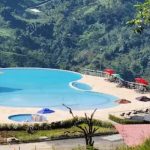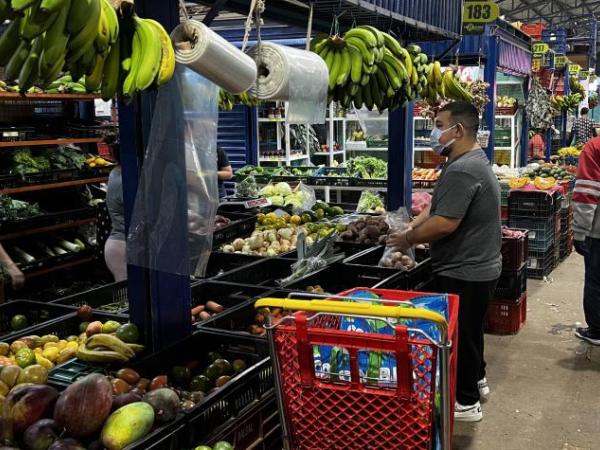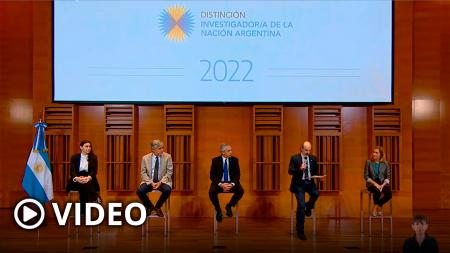The results of the 2022 Regional Barometer carried out in La Araucanía were presented. The activity organized jointly between the Center for Public Policies of the Catholic University of Temuco (CPP-UCT) and the Institute for Local and Regional Development of the Universidad de la Frontera (IDER-UFRO) took place at the Menchaca Lira campus. of the UCT.
With the presence of the rector of the UCT, Aliro Bórquez, and the director of Institutional Analysis and Development of UFRO, Fabiola Ramos, we went to the presentation of results. In addition, the initiative was attended by the directors of the CPP-UCT, Cristian Quiroz, and IDER-UFRO, Camilo Rosas, together with the professionals in charge of the survey, such as Emilio Moya Díaz, CPP researcher and associate professor at UCT. .
Among the guests, the government ministers, Verónica López-Videla, Labor and Social Welfare minister, Claudia Tapia and the Treasury minister, Ronald Kliebs, together with academics from both houses of study and the media, were also highlighted.
The results
The Barometer of La Araucanía, was carried out between August 12 and September 3, 2022 to 465 people from the region, where 70% correspond to people from communes other than Temuco.
Among the results that most attracted the attention of the attendees are those related to the perception of the main problems of the region, where the three most mentioned options were: relationship between the Chilean people and the Mapuche, crime and unemployment.
They also highlighted the important role played by the regional media, universities, the executive branch and local governments in terms of the perception of the contribution to regional development.
Regarding these results, the rector of the UCT, Aliro Bórquez, pointed out that “we have a great responsibility, together with other institutions, such as the media, to build an agenda on how to publicize what is being done. In this sense, we must make the necessary coordination to be able to contribute so that the inhabitants of our region feel part of and integrated with the different processes that we are developing”, said the rector.
Another aspect that caught the attention of UFRO’s Director of Analysis and Institutional Development, Fabiola Ramos, is the little recognition that exists for the person of the Regional Governor, which reached 91.3% of people who do not know him. “I think that as a University we have a very important task together with the Regional Government, which is to be able to make people understand the role of the Governor and what its scope is. I believe that this ignorance is due to the fact that this policy was thought of in Santiago and was replicated in all regions of the country and probably it is necessary to make the scope of what a Governor looks like in a region like this, where he is not from the government party current but that has not prevented working in an articulated manner”, he emphasized.
The seremis present at the activity, along with thanking the invitation and highlighting the work carried out by the university territorial study centers (CPP and IDER) assured that they will consider the results in the work that is already being carried out.
Perception of the relationship between the State and the Mapuche people
The academic and researcher, Emilio Moya, detailed in his presentation some of the results obtained, especially in relation to the perception of the Chilean-Mapuche sociocultural conflict.
Within the data presented by the researcher, he highlighted that the people surveyed associate the indigenous demands with three issues: the defense of the native culture, the defense of ancestral territories and terrorism. The results also mentioned that regarding the future of the so-called conflict between the Chilean State and the Mapuche people, the perception is that 48.4% will be bad and 34.3% say that it will be neither good nor bad.
Another of the results highlighted by the academic was the one that reveals that 88.8% of the people surveyed believe that the level of conflict observed between the groups in the region is between the forestry companies and the Mapuche communities, followed by 88 .6% for the communities and the State and in third place are the Carabineros and the Mapuche communities.
To the above, the director of the CPP-UCT, Cristian Quiroz, pointed out that, “in general, the results of the Regional Barometer allow us to have pertinent and local information that can be very useful, among other issues, for the new constituent process. The same previous mistakes cannot be made and the voice of the regions and the people must be listened to, for example, with these results and with others that can be obtained throughout the country”, closed the director of the CPP-UCT who took the opportunity to invite those present and the community in general to participate in the seminar “Rethinking public policies from La Araucanía” that will be held this Thursday, December 1.
For more detail on the activity and the results obtained, it can be accessed through the website of https://politicaspublicas.uct.cl/


















